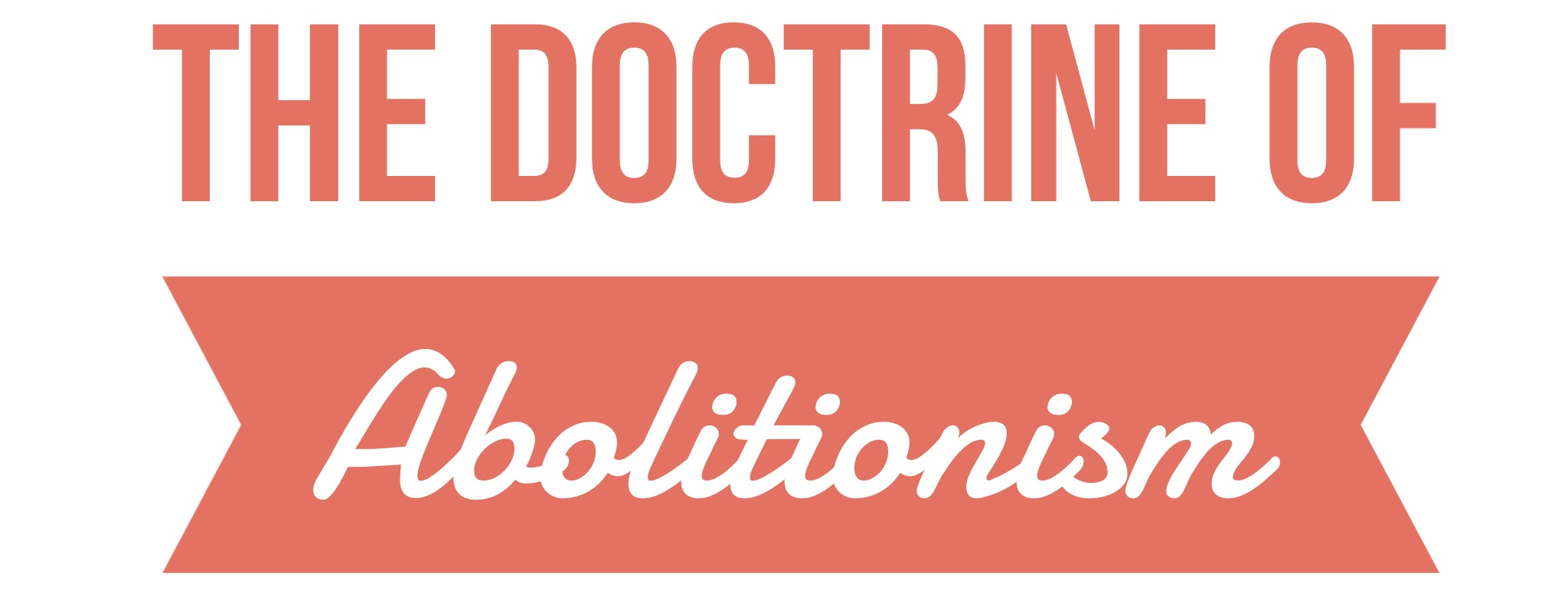King Over Cause
Abolitionism is not a more radical, Protestantized, immediatist form of prolifeism. It is so much more than that.
“We unite under a common King, not a common cause”
This phrase of the modern abortion abolitionist movement is more than a slogan. It is why we adopted abolitionism.
Many have become involved in this movement or interested in this movement because of abolitionism’s stance against regulationism. They are drawn to the uncompromised rhetoric, the bold critiquing of the failed pro-life movement, and our unashamed Christianity. This is great. God bless them! We are thankful for that interest and for any co-laborers that are striving to love their preborn neighbors. However, abolitionism is more than that.
It is especially important to understand the fullness of abolitionism because some have adopted truncated versions of abolitionism. They like the immediatism, but they leave out the Gospel-centeredness. They like the idea of Gospel-centeredness but buy into regulationism. They adopt four tenets, yet leave out one. They want to stand up for the preborn but hate with their words and actions the sojourner and the widow. They say they approve of all five tenets, yet twist immediatism or Gospel-centeredness, and so on and so on.
We do not make these distinctions, and we do not call out truncated-abolitionism for the sake of “tribal” loyalty, a misplaced desire for extreme purity, or the need to promote a particular brand. We want to maintain and defend the meaning of abolitionism because we believe ideas matter. We believe words matter, we believe abolitionism, properly understood, is found in the Scriptures. We believe abolitionism is true. We want to define and defend abolitionism because we love justice, mercy, truth, and (specifically) our preborn neighbors. If this defense causes division, we pray it is good division based on that love. Even more, we pray that we can persuade those who may have bought into a truncated form of abolitionism.
The holistic worldview that formed the basis for abolitionism was what first got many of us interested. Abolitionism, unlike pro-life organizations, was not primarily about saving babies. This has massive ramifications. Abolitionism, as a movement, placing the Kingdom of God before abortion activism, is precisely what made abolitionism different. Whatever intrinsically conflicts with the Crown Rights of Christ is antithetical to abolitionism, not just being pro-choice.
In short, abolitionism is the Biblical answer to societal and covenantal sin. Given the state of affairs around the world, abolitionism is most often applied to the ongoing abortion holocaust, though other injustices must also have abolitionism applied to it. Abolitionism seeks to answer the question of how does the Bride of Christ address and combat great evil in society.
Abolitionism is about building the Kingdom. We serve the King that we know is putting all of his enemies under his feet (1 Corinthians 15:25). So, no, we do not march to the capitol in DC and try to get the best that we can get. We do not feed on the scraps that the political elite toss at our feet. And yet we keep on weakly and passively coming to that table with our tails between our legs. The World is Christ’s. Christ is King of this World, and we are his ambassadors. Christ demands justice. Christ demands that all nations repent and believe the Gospel and his people should demand the same. And we can. We are His hands, His feet and we come in His name. And that has power. We have not only the assurance of personal salvation but also victory in History. We may be laying the foundation for the success that will come in our children or grandchildren’s generation, but Christ will have victory over the bloodshed of the innocent.
The abolition of abortion depends on the Kingship of Christ. Because of this, abolitionism has always been about more than abortion. It has to be more than that. The power to abolish abortion is not sign-holding, drop-carding, legislation, or any other tactic. It is the building of the Kingdom of God. Many tools are useful and are excellent examples of acting faithfully, and we are not opposed to sign-holding and direct activism. However, we must understand how this fight is fought on a foundational level. This is about defeating humanism, tyranny, and idolatry. Abolitionism, if we have ever been unclear, is about the King and His Kingdom.
Because abolitionism is about the King, we must know our King. All five tenets are vital, but perhaps the most foundational is being Gospel-centered. We must understand, believe in, obey, and share the Gospel of The Kingdom of Jesus Christ. We cannot allow room for radical ecumenicalism in the name of false peace.
If we seek the Kingdom of God first, we will achieve the abolition of abortion. If we seek the abolition of abortion first, we will get neither. Very much like how we cannot fight ageism with ageism, on a more fundamental level, we can’t resist the tyranny of the leviathan state with the tyranny of the church or family. And on an even more fundamental level, you cannot fight secular humanism with theistic conservative humanism. Abolitionism and the Gospel of the Kingdom of Jesus Christ brings about a clash of worldviews. This clash will encompass far more than our views on abortion.
And in this way, we can, with the help of the Almighty God, begin to abolish abortion. With boldness, consistency, and hope in the Victory of the Cross.
